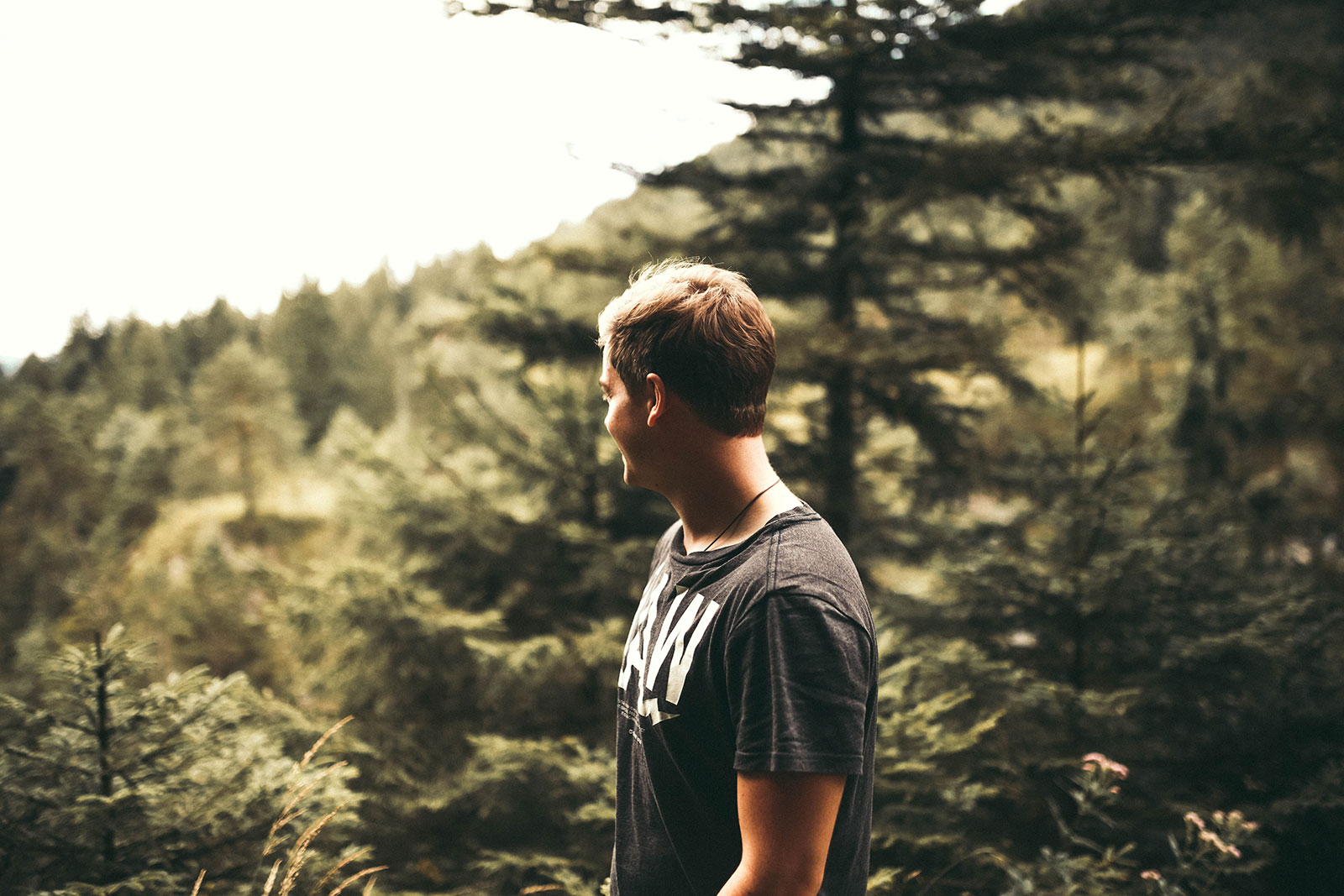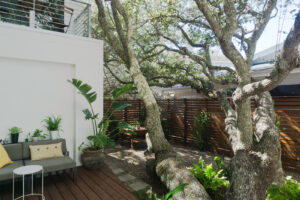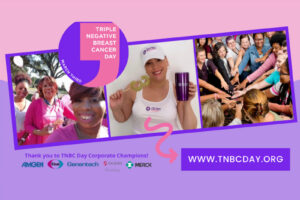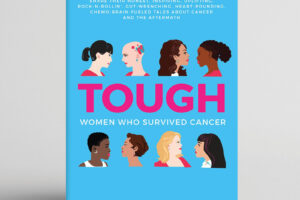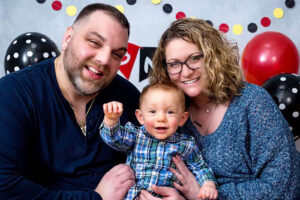In 2010, David Victorson, Ph.D., was in his early 30s, a new father, working as a licensed psychologist and writing grant proposals to fund programs that would improve quality of life during and after cancer treatment. “I vividly remember at that time being acutely aware of my young adult patients,” says Victorson, who is an associate professor of medical sciences at Northwestern University. “And just acutely aware, as well, that when they would die, they were [my age], and they either left a family behind or weren’t able to have a family because [of] treatment.”
Tapped into this community, Victorson began to notice a pattern: “Compared to kids with cancer and older adults with cancer, the young adult range really [had] been neglected,” Victorson says. According to him, there weren’t many resources available specifically for young adults with cancer during this time. That, combined with his belief in the healing power of nature, led him to the development of True North Treks, an organization serving, in particular, young adults with cancer.
True North Treks hosts backpacking and canoeing wilderness treks around the country, connecting young adult cancer survivors through physical activity, meditation and mindfulness practices, and the great outdoors. “Our treks help people connect with nature after the very unnatural experience [of] cancer,” Victorson says. True North Treks gives participants the opportunity to enjoy the serenity only found in nature, connect to peers with similar experiences and practice yoga and mindfulness meditation to “help to slow things down a bit, and help people find ways to enjoy their days or their moments,” he says.
Victorson considers contemplative practices as being “a very natural way to make the most out of our short time here on Earth.” That’s why on a True North Trek, mindfulness activities trump what some might consider more traditional support group activities, like regimented discussions oftentimes resembling group therapy. “It was a value and a goal early on that we didn’t approach this like it was going to be therapy,” Victorson begins. “Many young adults have stories about feeling out of place at support groups, feeling like they’re on the therapist’s couch or under the microscope, et cetera, and are interested in receiving different kinds of support that don’t necessarily fit with conventional formats. [To our guides], especially those who are trained in mental health disciplines, [we] ask them to try to be aware of—or even check at the door—their therapist self and try to come to the trek as themselves, connecting with people naturally.” Although, Victorson admits, “their therapy skills are really good to have in the back of their mind if they see someone having a moment of crisis.”
Victorson wanted True North Treks to look drastically different from other cancer support groups he had encountered—an easy enough task, considering the classroom is the backcountry of Wyoming, Utah or Montana, and at least a one-hour plane ride from a “level one trauma center,” according to Victorson. (Don’t worry—every trek is outfitted with two “woofer” guides, which stands for Wilderness Outdoor First Responders, who have been trained in emergency medicine as it relates to wilderness environments.) But that doesn’t mean participants don’t have the opportunity to relate their singular cancer experiences with other survivors.
“The conversations about their cancer, whether it’s sharing war stories, treatments, stupid things that their oncologist or somebody said to them, the whole gamut—those conversations start happening the first minute of our trek,” Victorson says. And this is due to the intimacy of each trek, spurred by days of physical exertion and cozy nights around the campfire. Participants spend five to six days together, in groups of 10 to 14 people. Everyone is carrying their belongings either on their back hiking through nature, or stowed in a canoe, paddling downstream, spending nights together under the stars. “In our treks, you might start a conversation with somebody on the first day and it continues and gets picked back up every day for the whole week,” Victorson says. “Whether it’s in the tent or in the canoe, or while cooking dinner, and it’s just a really intense seamless opportunity for them [to connect].”
It was a value and a goal early on that we didn’t approach this like it was going to be therapy.
It’s not uncommon for a trek to change a life for the better. “One of the biggest back-of-the-neck chill moments I get on these is when I see people meeting on the trek,” Victorson says. “The power of finding and being found is so strong, and on these treks, people really find brothers and sisters they didn’t know they had.”
It’s a sentiment echoed by True North Trek alum Anastasia DeLeo. At just 27 years old, DeLeo was blindsided by a stage III breast cancer diagnosis. After chemotherapy, a double mastectomy and radiation, DeLeo entered remission in December 2015. It wasn’t until after the opportunity to go on a trek, four years after entering remission, that DeLeo truly began to heal. “The trip really triggered my journey of healing,” she says. “I learned that I fit into a community that I had no idea I was even a part of.” DeLeo credits her trek with teaching her body, soul and mind how to heal post-diagnosis. “It [took] you out of the chaos of your everyday life and [brought] you to a place where there’s nothing but peace and quiet. It made you take a pause and say to yourself, ‘Self, you went through a very traumatic event and you need to process that,’” she says.
Many True North Trek alums consider their experience life changing, and amazingly enough, the organization has the science to back it up. Before each trek, True North Treks collects data from participants by administering surveys, and then again after the trek is finished. “We’ve been looking at self-reported symptoms of depression and anxiety and sleep quality,” Victorson begins, “and we’ve seen significant improvements in all of those things from our treks, even though that’s not necessarily something we’re looking to change.” But even more important, True North Treks have proven to positively affect a participant’s inflammatory response. (The link between chronic inflammation and cancer has been well-studied in the cancer research world.) “We saw that on average, [the] inflammatory response decreased,” Victorson says. “We know that exercise helps the inflammatory response [and] even social connection helps the inflammatory response.
And soon, True North Treks hopes to expand their participant base so even more people in the cancer community can experience the mental, emotional and physical benefits of a True North Trek, such as widowers, or entire families, as well as expanding treks to include a wider age group, for the over 40 or under 18 set. This year, they will host seven treks, three of which are week-long backcountry treks, and four of which are “long-weekend mini-treks.” The mini-treks are generally hosted at the Walden Institute, a retreat facility in Michigan’s Upper Peninsula. These treks give participants the opportunity to enjoy nature while also having access to “creature comforts” that are typically inaccessible on back country treks, like indoor plumbing.
Regardless of what brings someone to True North Treks, or where a trek takes them, the goal is the same: to help young adults get back to nature after a very unnatural experience with cancer. “Our treks help people find direction through connecting; [to help them] become recalibrated, reoriented,” Victorson says. “True north is a guiding metaphor. [We’re] trying to help people who may have felt like they were without a map, a compass, a rudder, [and] find some opportunities to find a path again.”

